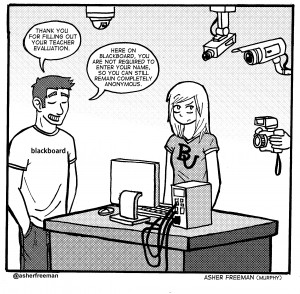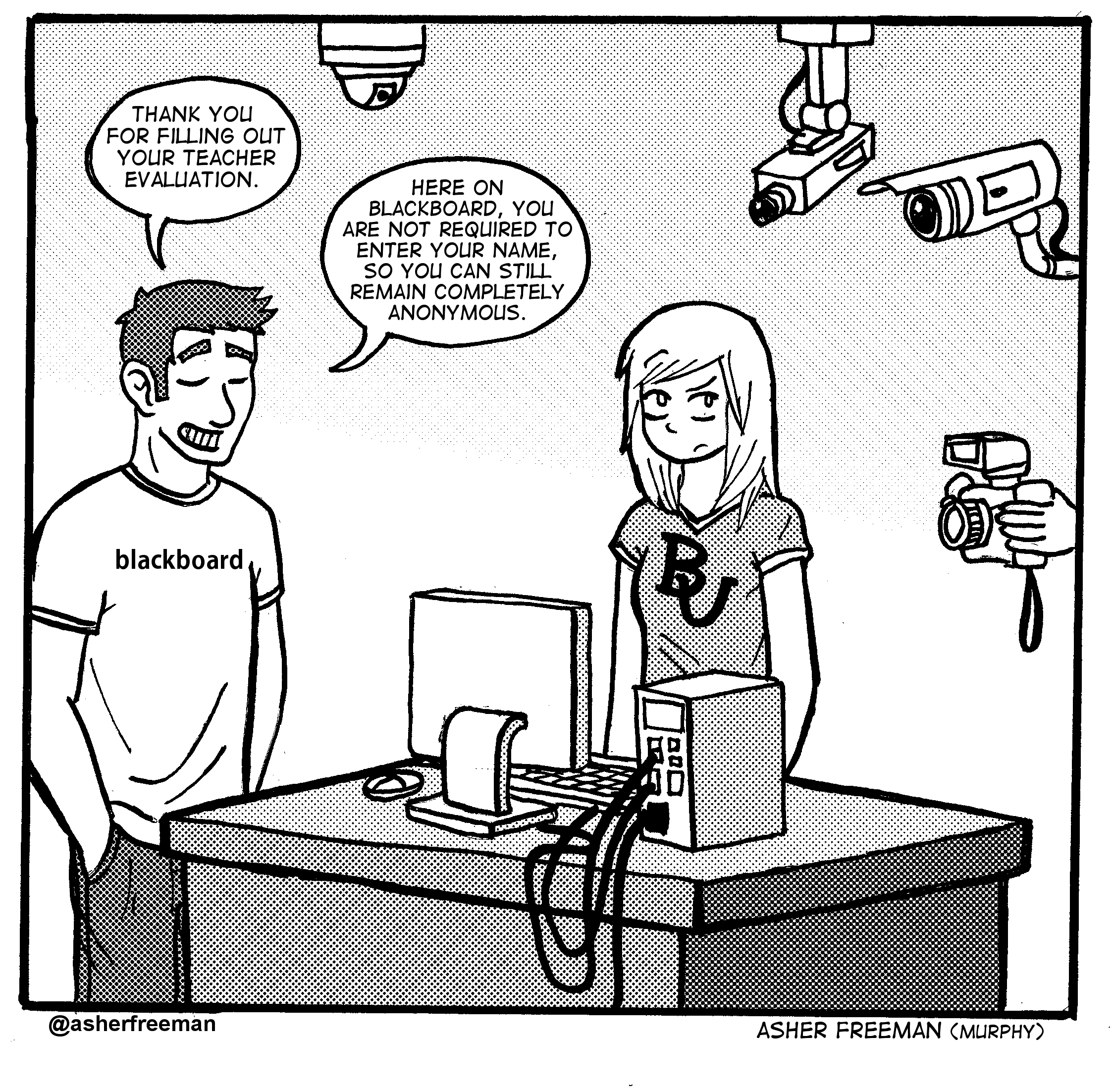 This year, Baylor moved from a paper-based system to an online system of teacher evaluations.
This year, Baylor moved from a paper-based system to an online system of teacher evaluations.
Normally, we would applaud this move. However, we have reservations about the current system.
For one thing, the paper evaluations were required to be completed in class, meaning that every student who showed up on evaluation day would fill one out. Unless class time is given to complete the online version, what would motivate students to do them? Fewer students participating may mean less accurate evaluations.
That pales in comparison to the main reason why we are opposed to online evaluations, though.
Anonymity.
Baylor University has contracted with EvaluationKIT to perform these online evaluations. However, there is one fundamental flaw with the whole process. A student is required to log in to Blackboard to be able to access the online evaluations.
Anyone who thinks their responses at that point are anonymous are unaware of the types of logging that take place across the Internet on a daily basis.
Let’s say Joe Baylor logs in to a computer in Moody Library. Immediately in Baylor’s system there is a record of him logging in and which computer he logged in at. He browses to Blackboard, where he logs in.
Baylor has an Internet filter in place to prevent students from going to illegal or illicit sites through Baylor’s servers. This means Baylor has a log of every website that every person that uses Baylor’s computers visits.
Since Joe Baylor logged in to the computer, Baylor knows every website he visited while he was logged in at the library, and at what date and time.
Say he then completes an online evaluation. While the website used for the online evaluations uses https secure browsing, meaning that the data transmitted from the computer to server is encrypted, that does not prevent Baylor from having a log of when the user submitted an evaluation because of the time stamps. Nor can we as students be assured that they do not have access to data transmitted via Blackboard.
Furthermore, there is no way to evaluate what information gets passed to EvaluationKIT, meaning they may have your Baylor ID, which they would then attach to your response in their system. The likelihood of this occurring is high, because if Baylor decided to pursue pressing charges against a student for their responses on an evaluation (in the event of a threat), the attorneys involved would be able to subpoena the records from EvaluationKIT to find out what student submitted that evaluation.
EvaluationKIT provides the data back to Baylor. However, there are ways they can provide “anonymous” data that would still allow Baylor to determine who gave what responses.
For example, if you fill out evaluations for multiple professors, your Baylor ID, which has been encrypted in a process called hashing, will be entered multiple times and could point to your class schedule. You could then be identified by your schedule, unless there are other students in the same semester with your schedule.
It’s not likely.
Even if EvaluationKIT didn’t provide that encrypted ID, if they were to provide a date/time stamp, that would allow Baylor to compare the data with their logs and determine who provided the evaluation.
There are a couple of solutions Baylor should choose from to ensure that responses are truly anonymous.
The preferred method, and the one we strongly propose, is that Baylor needs to move back to the truly anonymous paper evaluations. We think online evaluations will never accomplish the response rate that the paper-based system achieved unless class time is given to complete them.
Barring that, online evaluations should be detached from Blackboard. If Baylor decides to continue with online evaluations, we propose that EvaluationKIT generate randomly generated access codes for each section and class being evaluated and those access codes are distributed to the appropriate professor without Baylor involvement (meaning Baylor officials never have access to the access codes). That professor would then distribute that section’s access codes randomly to the students. EvaluationKIT would need a website completely under its control where students can go. Here the student would enter the random access code and be taken to a page on EvaluationKIT’s website to do the evaluation for that course.
Baylor also needs to allow guest access on computers so a student doesn’t have to log in on the Baylor network to perform these evaluations.






